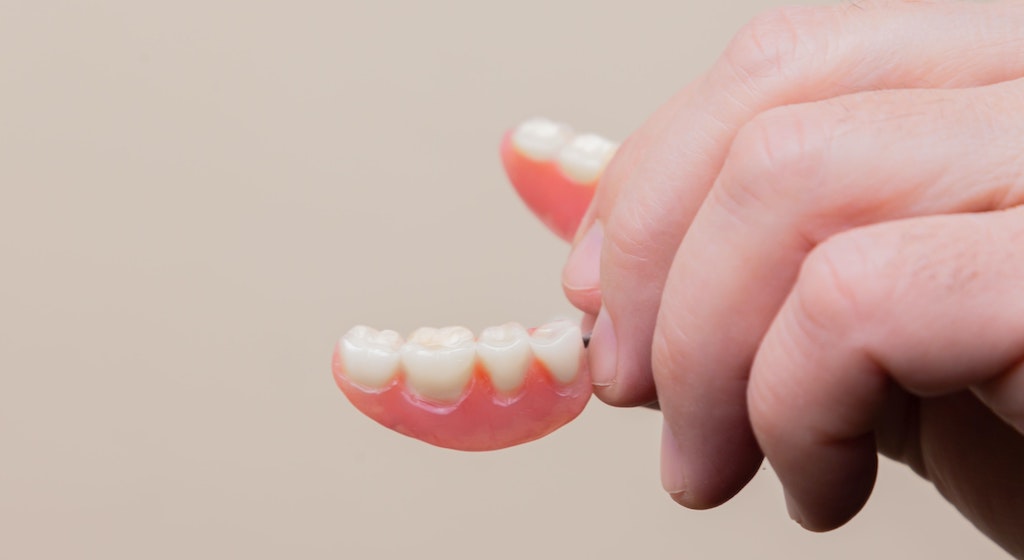Dentures
Last updated: January 12th, 2025

Why Dentures?
Also known as false teeth, dentures are fitted in place of natural teeth. Dentures are important if you lose your natural teeth.
Gaps left by missing teeth can cause problems with eating and speech. Losing your teeth makes it difficult to chew your food. This adversely affects your diet and may cause your facial muscles to sag.
Teeth on either side of the gap may grow into the space at an angle. This might need all the teeth removed and replaced.
You may need either complete or partial dentures. Complete dentures, a full set, replace all your upper or lower teeth. Partial dentures replace one or a few missing teeth.
How are dentures fitted?
Complete dentures
The denture is usually fitted as soon as your teeth are removed. Which means you won't be without teeth at any point. The denture will fit snugly over your gums and jawbone.
In some cases however, the gums may need to be left to heal and alter in shape for several months. Before dentures can be fitted. Your dentist will guide you on this.
Partial dentures
A partial denture fills in the gaps left by one or more missing teeth. It usually clips onto some of your natural teeth via metal clasps. These hold it securely in place in your mouth. It should be easy to unclip and remove. A fixed bridge is an alternative to a partial denture and may be more suitable in some cases.
Dentures upkeep
Full dentures are removable so you can clean them. While part dentures can be brushed at the same time as your other teeth.
Initially your dentist can advise you to wear the dentures all the time. Later on the dentures can be removed at night to give your gums some rest.
If you remove your dentures, keep them moist. You can soak them in water or a polythene bag with some dampened cotton wool in it. Or in a suitable overnight denture-cleaning solution.
This will stop the denture material drying out and changing shape.
Cleaning dentures
Clean your dentures as often as you would normal teeth. At least twice a day: every morning and night. You should: brush your dentures with toothpaste or soap and water before soaking them to remove food particles soak them in a fizzy solution of denture-cleaning tablets to remove stains and bacteria; follow the manufacturer's instructions brush them again as you would your normal teeth, but don't scrub them too hard
Eating with dentures
- When you first start wearing dentures, you should eat soft foods cut into small pieces and chew slowly, using both sides of your mouth.
- Avoid chewing gum and any food that's sticky, hard or has sharp edges.
- You can gradually start to eat other types of food until you're back to your old diet.
- Never use toothpicks.
Denture adhesive
Some people feel more confident with their dentures if they use adhesive. But you shouldn't need to use denture fixative (adhesive) if your dentures fit properly. If you do follow the manufacturer's instructions and avoid using excessive amounts.
When to see your dentist
Your dentures should last several years if you take good care of them. However poorly fitting or worn dentures can cause great discomfort. Leading to mouth sores, infections or problems eating and speaking. So see your dentist if: you have signs of gum disease or tooth decay, such as bleeding gums or bad breath your dentures click when you're talking your dentures tend to slip, or you feel they no longer fit snugly your dentures feel uncomfortable your dentures are visibly worn Finally, do not be afraid of dentures! Keep in mind that dentures improve the appearance of your smile and give you confidence.
